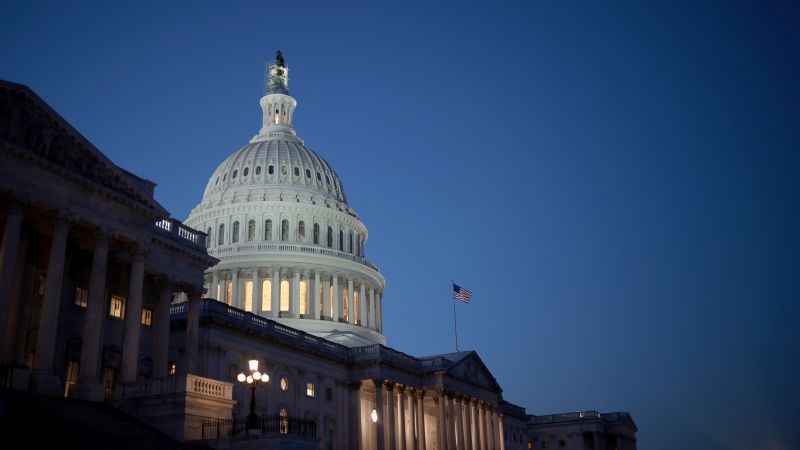Win McNamee/Getty Images
The U.S. Capitol Dome photographed on October 24, 2023 in Washington, DC.
Two sources told CNN that negotiators are close to reaching a spending agreement to maintain the government's remaining resources through the year, but lawmakers are expected to pass a bill this weekend that will close key agencies. still faces hurdles to avoid closure.
Congressional negotiators reached an agreement on funding for the Department of Homeland Security on Monday, according to a Republican leadership aide. At a time when security at the southern border has become a central issue in the 2024 election campaign, funding for government agencies has been a major stumbling block.
Aides warned that while there was general agreement on many elements of the bill as of Monday night, there was still work to be done on the bill. This process may take some time.
It is expected that the text will be published within the next few days.
That means lawmakers still face significant time pressures to pass the bill ahead of Friday night's deadline. House Republicans operate under a three-day rule, which would give lawmakers several days to review the text before voting. There's also expected to be a sizable blowback from Mike Johnson's right flank, which Speaker will have to overcome.
Forty-three members of the House Freedom Caucus have already called on House Republicans to reject any deal without key border provisions.
After months of dodging an eleventh hour shutdown with stopgap bills, Congress finally passed a six-piece bill in early March to fund a range of government agencies for the remainder of the fiscal year. passed, but the work is not over yet.
Many major government operations, including the Department of Defense, Department of Homeland Security, Department of Labor, Department of Health and Human Services, Department of Education, state governments, and the Legislature, must be funded by the end of the day on Friday, March 22nd. be.
The current fiscal year began on October 1, 2023, more than five months ago. Since then, lawmakers have faced a series of fiscal cliffs as a result of funding deadlines created by short-term extensions.
Many challenges lie ahead.
Under House Republican rules, leadership needs 72 hours for lawmakers to consider the text of the bill. That means lawmakers could work through the weekend to pass the bill after Friday's deadline has already passed. That would require the consent of all 100 senators for a quick vote, which could be extremely difficult, especially when it comes to funding the bill.
If funding is not approved by the deadline, government operations will cease, but the damage will be minimal if the shutdown is only extended to the weekend.
Negotiators were prepared to move forward with a one-year stopgap measure to fund DHS over the weekend, two people familiar with the negotiations said, but the White House has been slow to push through a year-round spending bill. He is said to have been involved. That is delaying negotiations, the people said.
This DHS funding bill has always been one of the most complex to get across the finish line. Aides say work on funding other agencies, including the State Department, Education and Labor Department, Health and Human Services Department, Treasury Department and Defense Department, has largely been discontinued.
In the House of Commons, Johnson must navigate a razor-thin majority and a backlash from the right. Hardline conservatives have expressed anger at Johnson's handling of the fight over government spending, and he relied on both Republican and Democratic votes to pass a six-point funding package earlier this month. There was a need.
The package, signed into law by President Joe Biden, includes funding for the Departments of Agriculture, Commerce, Justice, Veterans Affairs, Energy, Interior, Transportation, Housing, and Urban Development, as well as the Food and Drug Administration and military construction. It was included. and other federal programs.
Mr Johnson was elected speaker last year after the Conservatives ousted former leader Kevin McCarthy from the leadership post, and Mr Johnson faced similar threats to the post amid a backlash from the far right wing of the conference. Questions arose as to whether he could be exposed.
Mr. McCarthy's historic and unprecedented ouster sent House Republicans into weeks of turmoil as they struggled to choose a successor, and many Republicans do not want to see that scenario play out again.
This article and heading have been updated with additional developments.


